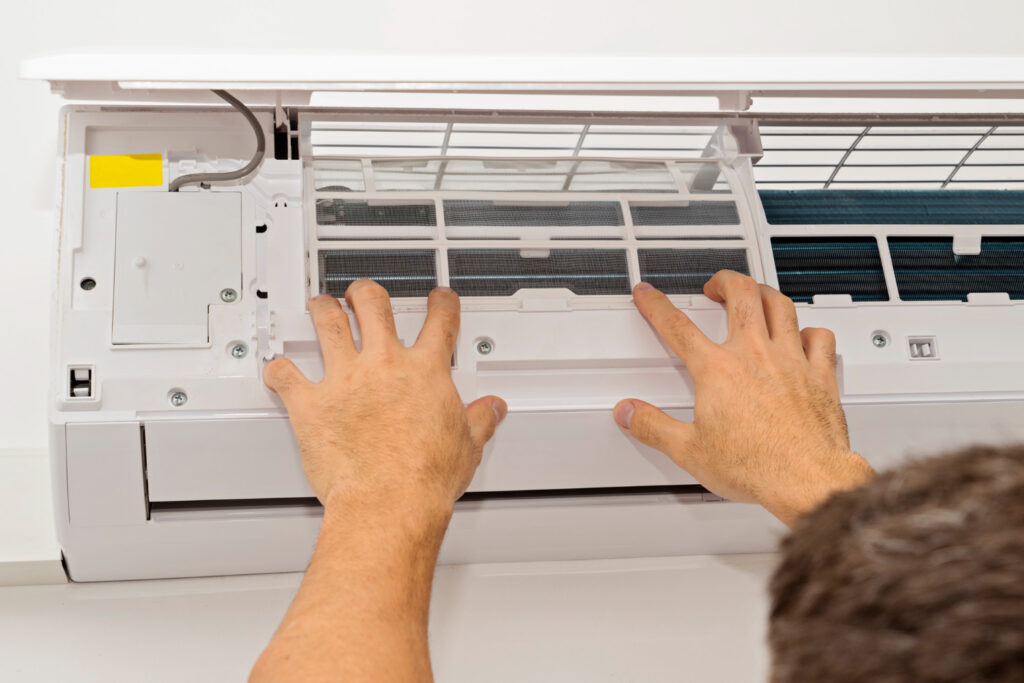When your air conditioning system reaches the end of its lifespan or becomes inefficient due to constant breakdowns, making an informed choice for AC replacement becomes crucial. Replacing your AC unit with a system well-suited for your property ensures optimal temperature regulation, energy efficiency, and overall comfort.
Explore the different factors to consider when selecting an AC replacement, and how our professionals at Air Mechanic Services can assist in identifying and installing the perfect system to meet the unique requirements of various settings, including residential homes, medical offices, retail stores, office buildings, daycare centers, and new constructions.
Assessing Your Property's Cooling Needs
Before choosing an AC replacement, it’s essential to assess your property’s specific cooling requirements to identify a system that can effectively and efficiently meet those demands. Here are some factors to consider when evaluating your property’s needs:
1. Size and Layout
Larger properties or those with unique layouts may require more powerful or adaptable AC systems to maintain consistent temperatures throughout space. Take note of your property’s square footage and any particular design elements that might affect AC performance, such as high ceilings, large windows, or multiple floors.
2. Energy Efficiency
Upgrading to a more energy-efficient AC system can significantly reduce energy consumption and lower your utility bills. Consider the energy efficiency rating of prospective systems, as well as their potential for long-term energy savings.
3. Intended Purpose
Different property types often have varying cooling needs based on their purpose or function. For example, medical offices prioritize maintaining sterile environments, while daycare centers require temperature control for children’s comfort and safety. Keep these unique requirements in mind when selecting an AC replacement.
Types of Air Conditioning Systems
Now that you’ve assessed your property’s cooling needs, it is necessary to become familiar with the various air conditioning system types available. Some of the most common options include:
1. Central Air Conditioning
Central AC systems cool your entire property through a system of ducts and vents, providing consistent temperatures throughout. These systems are typically energy-efficient and effective for larger properties.
2. Ductless Mini-Split Systems
Ductless mini-split systems are ideal for properties without existing ductwork or with unique layouts. Each indoor unit is responsible for cooling a specific area or zone, allowing for individual temperature control in different rooms.
3. Window or Wall-Mounted Units
Window or wall-mounted units are a more affordable option for smaller properties or for cooling individual rooms. While these units may be effective for their intended areas, they can be less energy-efficient than other system types.
4. Heat Pumps
Heat pumps are versatile systems that provide both cooling and heating for your property. They may be a cost-effective and energy-efficient option, particularly for mild climates.
Selecting the Right AC Unit Size and Efficiency
When replacing your AC, it is crucial to select the right size and efficiency level to ensure optimal performance and energy savings:
1. Size
An undersized AC unit may struggle to maintain comfortable temperatures, while an oversized one may cycle on and off too frequently. Consider your property’s square footage and layout when selecting the appropriate system size.
2. Seasonal Energy Efficiency Ratio (SEER)
The SEER rating measures the efficiency of an AC unit. Opting for a system with a higher SEER rating indicates better energy efficiency and potential savings on utility bills.
Professional Installation for Optimal Performance
Engaging the services of professional HVAC technicians for your AC replacement is essential for achieving optimal performance, longevity, and efficiency from your new system. Our technicians at Air Mechanic Services possess the expertise and experience to ensure proper installation of your AC system, covering aspects such as:
1. Sizing and Placement
Proper sizing and placement of your AC system play a pivotal role in efficient operation and maintaining consistent temperatures. Our professionals will evaluate your property’s layout and cooling needs to install an appropriately sized system in an ideal location.
2. System Setup and Configuration
Professional installation includes setting up vital system connections and ensuring proper configuration. Our technicians will calibrate thermostat settings, test system functions, and ensure smooth operation before leaving your property.
3. Ductwork and Insulation
Ensuring adequate ductwork and insulation is critical for energy efficiency and effective temperature regulation. Our technicians will inspect and seal any leaks in the ductwork, check for appropriate insulation, and make any necessary adjustments.
4. Compliance with Local Codes and Regulations
Our professional HVAC technicians remain up-to-date with local building codes and regulations. This knowledge ensures that your AC replacement adheres to these guidelines, promoting safety and the efficient functioning of your new system.
Optimizing Your AC Replacement for Comfort and Efficiency
AC replacement is a vital investment that requires careful planning and the right considerations. By evaluating your property’s cooling needs, familiarizing yourself with available AC systems, selecting an appropriately sized and efficient unit, and opting for professional installation, you can optimize your property’s comfort, energy efficiency, and value.
At Air Mechanic Services, our professionals are dedicated to helping you make the right choice in an AC replacement in Katy, TX, providing expert advice and guidance every step of the way. Contact us today to discuss your AC replacement needs and discover how we can enhance your property’s comfort and efficiency with the perfect air conditioning system!



